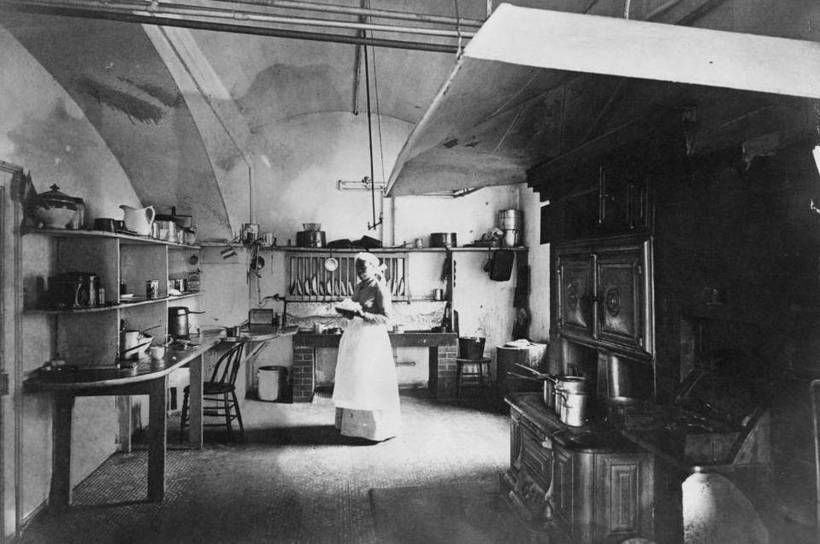
Dollie Johnson in the White House kitchen (circa 1890)
We have just witnessed the inauguration of the 45th president of the United States. Not knowing what the political future of the country holds, we are trying to make sense of the signals that the new president gave during the campaign and the transition. Based on his cabinet choices, his impromptu pronouncements on twitter, and a bizarre press conference, there is a lot to worry about – including in terms of the future of our food system. The scant commitment to sustainability and the determination to cut the budget at all costs does not bode well for all those who need forms of support to feed their families. These often include the less protected sectors of society, such as citizens with disabilities, women, immigrants, and minorities.
Many also may wonder what will happen to the vegetable garden that Michelle Obama launched, who will be cooking for the first family and what they will eat. In this context, I found particularly refreshing to read The President’s Kitchen Cabinet, a book that looks at the contributions of a specific minority – African Americans – to the food culture of past presidents and the White House. As its author Adrian Miller observes, “Life in a bubble can be very good, but a good story could be richer if more voices were added to give perspective.” As Miller points out, many of the culinary professionals he introduces are likely to be virtually unknown to most readers, because “much of the venerable presidential history we consume omits these people primarily due to a mix of condescension and contempt toward African Americans on the part of white historians who wrote the stories.” Although information is now more readily available, Miller still notices a form of laziness that prevents writers from acknowledging that “there are more cooks in the kitchen than the executive chef and the pastry chef.”
The President’s Kitchen Cabinet delves into the personal histories, the tribulations, and the achievements of the most relevant – and those for whom documents exist – among the numerous black men and women that found employment as stewards, maître d’s, chefs, cooks, and even mixologists in the White House, but not only. In fact, a chapter is dedicated to those who worked on trains, yachts, and planes that transported the US presidents across the country and around the world. George Washington’s cook Hercules, Thomas Jefferson French-trained chef James Hemings, Lyndon Baines Johnson’s family cook Zephyr Wright and many other come to life, indicating how deep the influence of African Americans has been on the culinary arts of the United States, long before a juggernaut like Edna Lewis made her presence felt on the national scene. In the early decades of the republic, many of these professionals worked as slaves, and Miller does not hesitate to point out what their legal status meant for their personal lives and in terms of their relationship with the man in power, which ranged from benign paternalism to callous insensitivity and outright exploitation. Miller’s book responds to the same desire to acknowledge the oft-ignored past history of black culinary professionals that inspires the pages of Toni Tipton-Martin’s The Jemima Code. However, while the latter emphasizes cookbooks, The President’s Kitchen Cabinet focuses on material culture, cultural issues, political dynamics, and labor relations, contributing to the study of the development of the culinary professions in the US.
Since the independence, African American personnel in the White House have found themselves interacting more or less smoothly with the First Ladies, who – as Miller underlines – play a crucial role in determining what is prepared and consumed, and particularly influence the president’s diet. Join us on Monday, January 30th at The New School for a Culinary Celebration of America’s Founding Mothers, a conversation with culinary experts Joanna Pruess and Kelsey Brow about three of America’s First Ladies, Martha Washington, Abigail Adams, and Dolley Madison. The event, which will include a tasting of some recipes, will help us further our understanding of the role food plays in determining the public image of presidents and the perception of their politics in general.

Comments are closed.